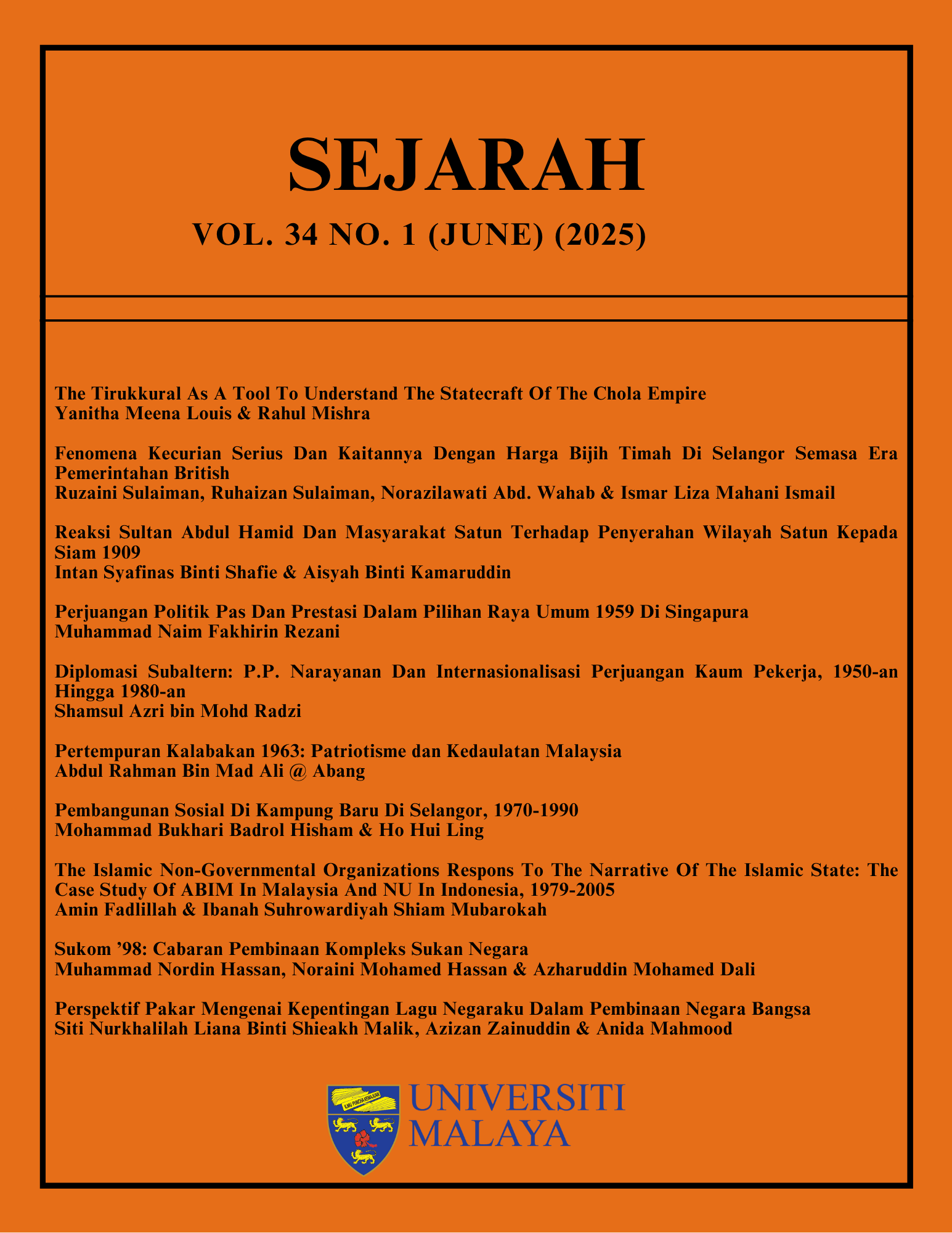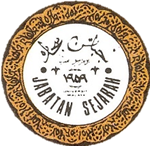THE THE ISLAMIC NON-GOVERNMENTAL ORGANIZATIONS RESPONS TO THE NARRATIVE OF THE ISLAMIC STATE: THE CASE STUDY OF ABIM IN MALAYSIA AND NU IN INDONESIA (1979-2005)
DOI:
https://doi.org/10.22452/sejarah.vol34no1.8Keywords:
Islamic State, NU, ABIM, Malaysia, IndonesiaAbstract
In 1979, The Iranian Revolution succeeded in overthrowing the despotic-secular government of Shah Reza Pahlevi and since then Iran has become an Islamic state. This successful revolution re-enforced of the narrative of an Islamic state that occurred in Malaysia and Indonesia. This article to examine whether the response of Islamic Non-Governmental Organization (INGO), namely the Angkatan Belia Islam Malaysia (ABIM) and Nahdlatul Ulama (NU) in Indonesia, to this Islamic state narrative is then manifested into acceptance or otherwise. This article aims to examine how ABIM and NU conceptualize and interpret the narrative of an Islamic state and to what extent ABIM and NU in Malaysia and Indonesia receive the issue of an Islamic state. The research uses a historical method namely heuristic, verification, interpretation and historiography. Primary data were obtained from library research, both data in the form of official government documents, INGO documents and in-depth interviews from selected respondents in both countries. The results of this study can be concluded that the narrative of the Islamic state was responded to by ABIM in Malaysia and NU in Indonesia with the conceptions and interpretations regarding the Islamic state. In the initial phase, both organizations conceptualized the meaning of Islamic state with an idealistic and rigid understanding. Both ABIM and NU wanted the formal implementation of an Islamic state in the country's constitution. Therefore, the relationship between the two organizations and the government was often heated and they were considered oppositional. The second phase witnessed both organizations shifting the conception and meaning of the Islamic state to a more moderate and contextual one. They realized that the heterogeneous structure of society in both countries was an obstacle to the literal meaning of the Islamic state.


